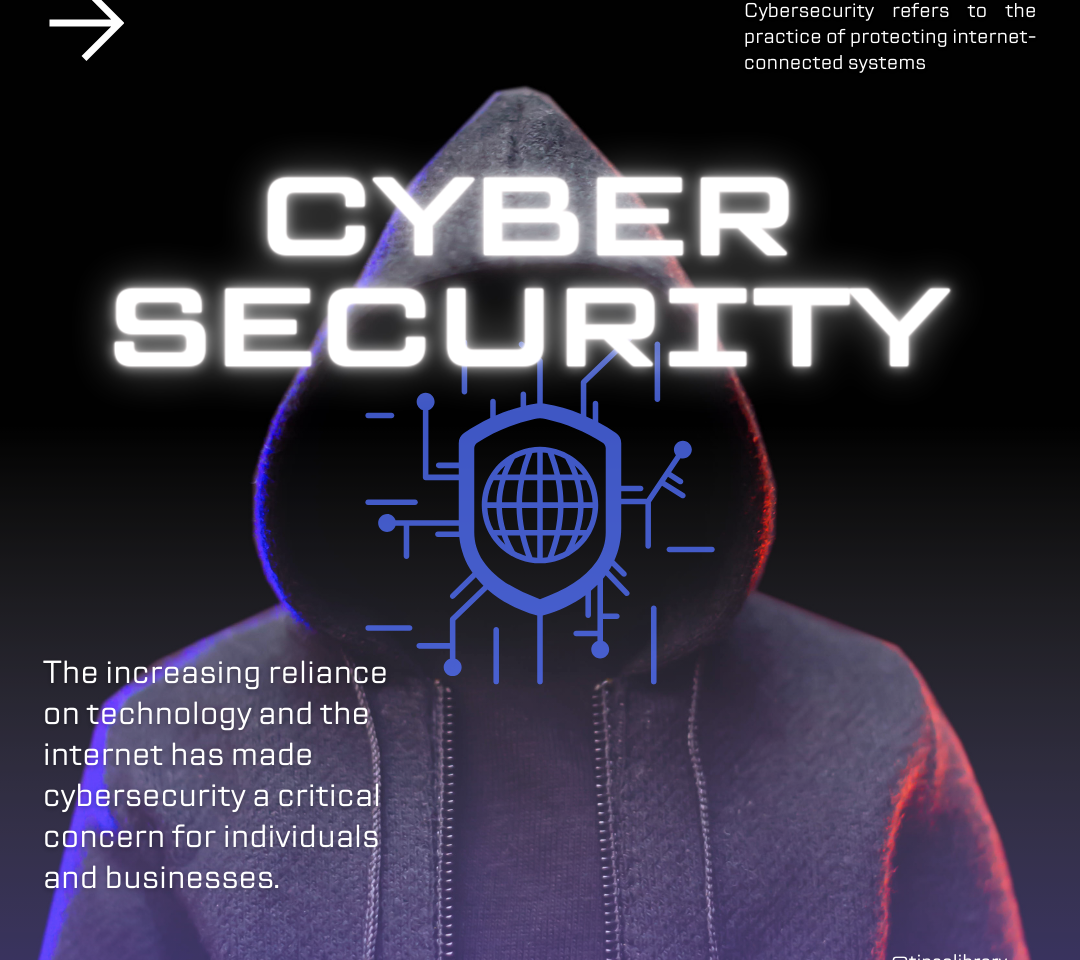In today’s digital age, protecting our online presence has become more important than ever. With cyber threats on the rise, it is crucial to understand the importance of cybersecurity and how to safeguard our digital lives. In this ultimate guide, I will walk you through the various aspects of cybersecurity and provide you with practical tips to protect yourself from cyber threats.
Understanding Cyber Threats and Their Impact
Cyber threats come in various forms and can have severe consequences on both individuals and organizations. From phishing attacks to malware infections, cybercriminals are constantly evolving their tactics to exploit vulnerabilities. These threats can result in stolen personal information, financial loss, identity theft, and even damage to your reputation. Understanding the different types of cyber threats and their potential impact is the first step towards protecting yourself.
Importance of Cybersecurity in Today's Digital World
With the increasing reliance on technology, cybersecurity has become a critical aspect of our daily lives. From online banking to social media, we are constantly sharing sensitive information online. Without proper cybersecurity measures in place, our personal and financial data are at risk. Cybersecurity not only protects our digital assets but also ensures the confidentiality, integrity, and availability of our information. By investing in cybersecurity, we can safeguard our digital life and enjoy the benefits of the digital world without compromising our security.
Common Cyber Threats and How to Identify Them
Cyber threats can manifest in various forms, making it important to be able to identify them. Phishing attacks, for example, often involve tricking individuals into revealing their personal information through deceptive emails or websites. Malware, on the other hand, is malicious software that infiltrates your devices and can cause significant damage. By staying informed about the different types of cyber threats and being cautious of suspicious activities, you can better protect yourself from falling victim to these threats.

Essential Cybersecurity Practices for Individuals
Protecting your digital life starts with implementing essential cybersecurity practices. One of the most important steps is keeping your devices and software up to date. Software updates often include security patches that address vulnerabilities, so it is crucial to install them as soon as they become available. Additionally, having reliable antivirus software is essential in detecting and removing malicious software from your devices. Regularly backing up your data is another crucial practice, as it helps protect against data loss in the event of a cyber incident.
Importance of Antivirus Software in Protecting Your Digital Life
Antivirus software plays a crucial role in protecting your digital life from cyber threats. It acts as a first line of defense by detecting and removing malware from your devices. With the ever-evolving nature of cyber threats, having up-to-date antivirus software is essential. It scans your files and incoming data for any signs of malicious activity, providing you with peace of mind knowing that your devices are protected. Investing in a reputable antivirus software is a small price to pay for the security it provides.
The Role of Firewalls in Safeguarding Your Online Presence
Firewalls are another essential component of cybersecurity. They act as a barrier between your devices and the internet, monitoring incoming and outgoing network traffic. Firewalls can be either hardware or software-based and help prevent unauthorized access to your devices and networks. By setting up a firewall, you can control which applications and services have access to your network, reducing the risk of cyber intrusions. It is important to configure your firewall properly and keep it updated to ensure maximum protection.
Best Practices for Securing Your Devices and Networks
Securing your devices and networks goes beyond antivirus software and firewalls. It involves implementing best practices that enhance your overall cybersecurity. One such practice is enabling automatic updates on your devices, ensuring that you have the latest security patches installed. Additionally, using a Virtual Private Network (VPN) can add an extra layer of security when connecting to public Wi-Fi networks. Regularly reviewing and adjusting your privacy settings on social media platforms is also crucial in preventing unauthorized access to your personal information.
How to Create Strong and Unique Passwords
Passwords are the keys to our digital lives, so it is essential to create strong and unique ones. Avoid using common passwords such as “123456” or “password” as they are easily guessable. Instead, create passwords that are at least eight characters long and include a combination of uppercase and lowercase letters, numbers, and symbols. It is advisable to use a password manager to securely store and generate unique passwords for each of your online accounts. Remember to change your passwords regularly and never reuse them across different accounts.
Two-Factor Authentication: An Added Layer of Security
Two-factor authentication (2FA) adds an extra layer of security to your online accounts by requiring an additional verification step. With 2FA enabled, you will need to provide a second piece of information, such as a unique code sent to your mobile device, in addition to your password. This ensures that even if your password is compromised, unauthorized access to your accounts is prevented. Many online services offer 2FA as an option, and it is highly recommended to enable it wherever possible to enhance your cybersecurity.
Educating Yourself and Your Family About Cybersecurity
Cybersecurity is a shared responsibility, and it is important to educate yourself and your family about the risks and best practices. Stay informed about the latest cyber threats and share this knowledge with your loved ones. Teach them about the importance of strong passwords, safe browsing habits, and being cautious of suspicious emails or messages. Encourage open communication about cybersecurity within your family, so everyone can be proactive in protecting their digital lives.
The Role of Cybersecurity in Businesses and Organizations
Cybersecurity is not only important for individuals but also crucial for businesses and organizations. A cyber attack can have devastating consequences on a company’s reputation, financial stability, and customer trust. Implementing robust cybersecurity measures, such as regular vulnerability assessments, employee training programs, and incident response plans, is essential in mitigating the risk of cyber threats. Investing in cybersecurity is an investment in the long-term success and resilience of any organization.
Cybersecurity Tools and Resources
Fortunately, there are numerous cybersecurity tools and resources available to help individuals and organizations protect themselves from cyber threats. From antivirus software to network monitoring tools, these resources can enhance your cybersecurity posture. It is important to research and choose reputable and trusted tools that align with your specific needs. Additionally, staying updated with the latest cybersecurity news and following reputable cybersecurity organizations can provide valuable insights and guidance.
The Future of Cybersecurity: Emerging Trends and Challenges
As technology continues to advance, so do cyber threats. The future of cybersecurity presents both opportunities and challenges. With the increasing adoption of artificial intelligence and the Internet of Things, new vulnerabilities and attack vectors are emerging. It is crucial for cybersecurity professionals and individuals alike to stay ahead of these trends and adapt their strategies accordingly. Collaboration between industry, government, and academia will play a vital role in addressing the evolving challenges and ensuring a secure digital future.
More from Elisen
Generating Revenue with Mobile Apps: A Comprehensive Guide
- March 18, 2024
- 6 Minutes
Crush Your Cravings: Proven Techniques to Win the Battle Against...
- November 30, 2023
- 10 Minutes
Amazon Affiliate Marketing Success: A Step-by-Step Guide to Earning
- March 8, 2024
- 6 Minutes
Conclusion
In conclusion, cybersecurity is paramount in protecting our digital lives from cyber threats. By understanding the different types of threats, implementing essential cybersecurity practices, and utilizing the right tools and resources, we can safeguard our online presence. Remember to stay informed, educate yourself and your family, and be proactive in staying one step ahead of cybercriminals. With a strong cybersecurity posture, you can confidently navigate the digital world and protect your digital life from cyber threats.








